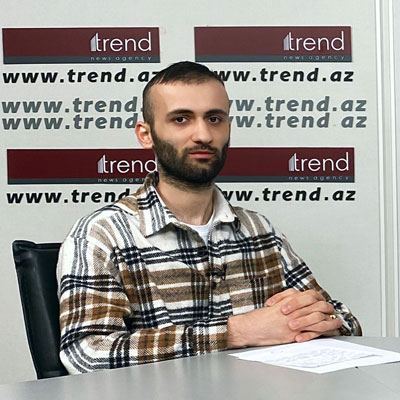BAKU, Azerbaijan, July 31. Georgia, Hungary, Romania and Azerbaijan signed a memorandum of understanding on the establishment of a joint venture on the Azerbaijan-EU Green Corridor project last week, Trend reports.
In accordance with the memorandum, it is planned to create a joint venture that provides for the transportation of green energy from the Caspian Sea to Europe. Azerbaijan and Romania intend to accelerate work on the Green Corridor project.
Azeri-Chirag-Guneshli
BP expects to stabilize crude oil production at the Azeri-Chirag-Guneshli (ACG) block in Azerbaijan over the next few years thanks to the new platform (the Azeri Central East).
Over the next few years, oil production from ACG will be fairly stable, with a slight decrease. In addition, the company is focused on investing in ACG to stabilize production and maintain oil flow, as well as in the Shah Deniz gas condensate field.
Azeri Central East (ACE)
The work on the Azeri Central East (ACE) platform construction project on the block of ACG fields in the Azerbaijani sector of the Caspian Sea has been completed by 90 percent. The $6 billion ACE project is the next stage in the development of a giant ACG field in the Caspian Sea.
The ACE platform and equipment are designed to process up to 100,000 barrels of oil per day. It is expected that up to 300 million barrels will be produced during the entire duration of the project. The platform will be controlled remotely from the Sangachal terminal and include an innovative automation system.
Oil reserves
Azerbaijan's proven oil reserves are estimated at 7 billion barrels as of 2022, having remained unchanged since 2021. The total global oil reserves amounted to 1.564 trillion barrels in 2022, compared to 1.547 trillion barrels in 2021, which means an increase of 1.1 percent.
The cartel's oil reserves amounted to 1.243 trillion barrels last year, which is slightly higher in comparison with 1.242 trillion barrels in 2021.
Interconnector Greece Bulgaria (IGB)
A total of 12.7 MWh of natural gas were transported via the Interconnector Greece Bulgaria (IGB) from the moment of commercial launch until the end of June 2023. The current capacity of the pipeline connecting the gas transmission systems of Greece and Bulgaria is 3 billion cubic meters per year.
As many as 1.57 billion cubic meters per year have already been booked under long-term contracts for up to 25 years. The remaining capacity has been successfully put up for different periods at the European sites of PRISMA and RBP.
After the recent successful completion of auctions for annual capacity, 80 percent of the total IGB capacity has already been booked for the next gas year (2023-2024). The IGB began commercial deliveries on October 1, 2022.
The volume of gas transportation via the IGB amounted to 1.178,785 MWh in June, compared to 1.071,576 MWh in May. Thus, a 10 percent increase in gas supplies through this interconnector was recorded in June compared to the previous month. The volume of transportation during this period peaked at 1.777,260 MWh in February, and the lowest level was recorded in May at 1.071,576 MWh.
Equinor and ACG
The average daily production by the Norwegian Equinor company at the ACG block on the shelf of Azerbaijan in the second quarter of 2023 amounted to 26,500 barrels of oil equivalent per day, compared to 30,200 barrels of oil equivalent per day in the second quarter of 2022.
Thus, the company's production fell by 12.3 percent year-on-year. Equinor production from ACG also decreased by 5.4 percent compared to the previous quarter, since this figure was 28,000 barrels of oil equivalent per day in the first quarter of 2023.
The non-current assets of the Norwegian Equinor company in Azerbaijan amounted to $1.3 billion as of June 30, 2023, compared to $1.4 billion as of December 31, 2022. Thus, its non-current assets in Azerbaijan decreased by 1.4 percent.
Equinor's total non-current assets were $65.5 billion as of June 30, 2023, compared to $64.4 billion as of December 31, 2022, indicating an increase of 1.7 percent.
SOCAR
Last week, the State Oil Company of Azerbaijan (SOCAR) increased gas production by more than 14 percent in the second quarter of 2023 compared to the same period in 2022.
The company produced more than 2.2 billion cubic meters of gas in the second quarter, which is 14.3 percent more in comparison with the same period in 2022. In general, the volume of natural gas production during this period amounted to 11.9 billion cubic meters, an increase of 2.5 percent compared to the same period last year in Azerbaijan.
In addition, SOCAR reduced the volume of drilling operations by 4.5 percent in the second quarter of 2023 compared to the first quarter. The company drilled 19,732 meters in the second quarter, compared to 18,830 meters in the first quarter.
Drilling works at fields (operated by SOCAR) are carried out by SOCAR Complex Drilling Works Trust (CDWT), SOCAR AQS and Gulf Drilling Supply FZE.
Also, SOCAR's oil refining increased by 36.8 percent in the second quarter of 2023 compared to the corresponding period last year. During the reporting period, about 1.6 million tons of oil and about 857 million cubic meters of natural gas were processed at the SOCAR processing complex in Azerbaijan.
A total of 610,000 tons of oil, petrochemical, and gas chemical products from SOCAR facilities in Azerbaijan were exported to foreign countries during the quarter. This figure is 51.2 percent higher compared to the corresponding period last year. During the reporting period, natural gas consumption amounted to 2.5 billion cubic meters in Azerbaijan.
SOCAR has started pumping the first 50 million cubic meters of gas into Hungarian storage facilities. The largest Hungarian MVM CEEnergy wholesale natural gas trader and SOCAR signed a contract for the transportation of 100 million cubic meters of gas on June 2. Deliveries will begin in the fourth quarter of 2023.






